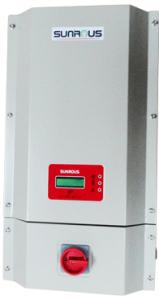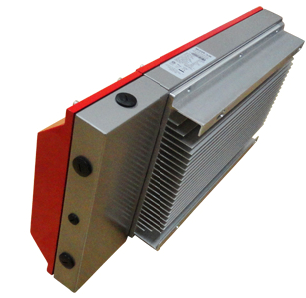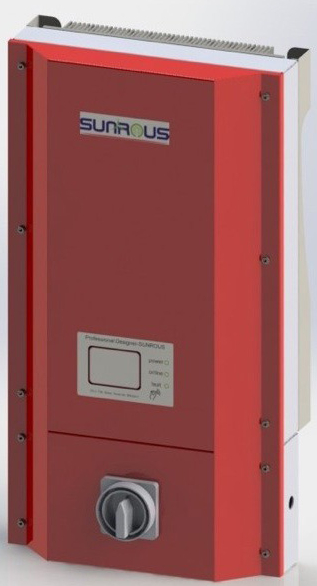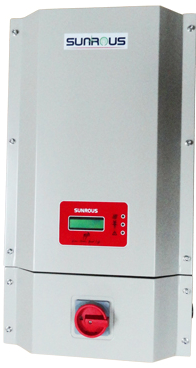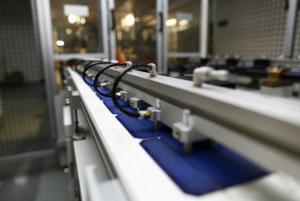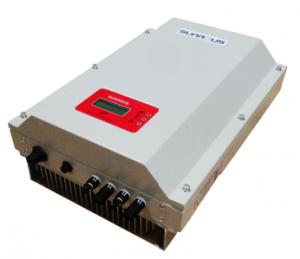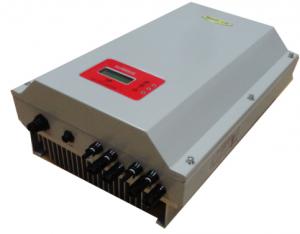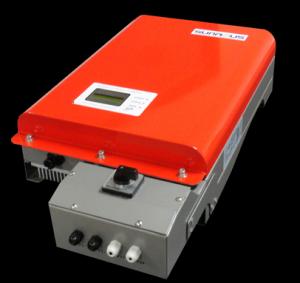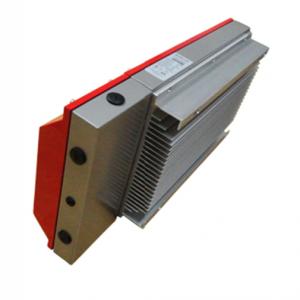30kW PV Grid-Tied Inverter Dual MPPT-US Solar Inverter
- Loading Port:
- Shanghai
- Payment Terms:
- TT or LC
- Min Order Qty:
- 10 mm
- Supply Capability:
- 1000 mm/month
OKorder Service Pledge
OKorder Financial Service
You Might Also Like
PV Grid-Tied Inverter Dual MPPT-US Solar Inverter
GT3.6-ZX-01/HF | |
Input(DC) | |
Max.DC Power | 3600W |
Max.DC Voltage | 500V |
PV Voltage range, MPPT | 60V ~ 360V |
Max.input current | 30.0A |
Number of MPP trackers | 2 |
Max.number of strings (parallel) | 4 |
Output(AC) | |
Nominal AC power / | 3600W/3600W |
Max.output current | 16.0A |
Nominal AC Voltage / range | 180V~264V |
AC grid frequency / range | 47.5-51.5Hz / 59.3-60.5Hz |
Power factor at rated power | 1 |
THD | < 3% |
AC connection | Single-phase |
Efficiency | |
Max. efficiency/Californian efficiency | > 98.0% / > 97.0% |
MPP adaptation efficiency | > 99.0% |
Protection devices | |
DC reverse polarity protection | √ |
AC short-circuit protection | √ |
Ground fault monitoring | √ |
Grid monitoring | √ |
Output Transient Voltage Suppression | √ |
Over load | √ |
Anti-islanding | √ |
General data | |
Dimensions (W/ H / D) in mm | 370 / 540 / 185 mm |
Weight | 23kg |
Operating temperature range | -25 ~ +60℃ |
Storage temperature range | -40 ~ +70℃ |
Ambient humidity | 0 ~ 100% |
Consumption (night) | < 0.5W |
Topology | HF-transformer galvanic isolation |
Cooling concept | Convection |
Enclosure type | IP65 / NEMA 3R |
Features | |
DC connection: PV special connector | √ |
AC connection: connector | √ |
LCD display & Backlit | √ |
LED display | √ |
Interfaces: RS485 | √ |
Warranty: 10 years | √ |
Certificates & approvals | G83 / G59 / TUV / SAA / ETL / JET/ CE |
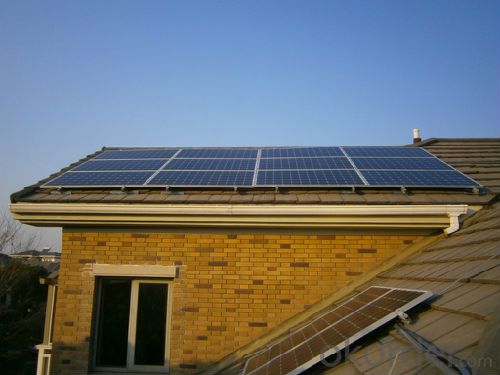
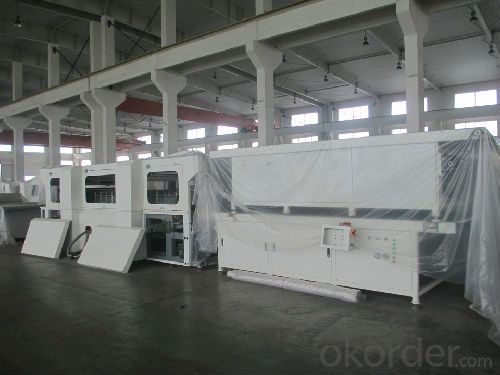
- Q: Can a solar inverter be used with other renewable energy sources like wind or hydro power?
- Yes, a solar inverter can be used with other renewable energy sources like wind or hydro power. Inverters are designed to convert the direct current (DC) generated by various renewable energy sources into alternating current (AC) that can be used to power homes, buildings, or be fed into the grid. So, by connecting a wind turbine or hydro generator to a solar inverter, it can efficiently convert the generated energy for practical use.
- Q: What is the purpose of a solar inverter?
- The purpose of a solar inverter is to convert the direct current (DC) electricity generated by solar panels into alternating current (AC) electricity that can be used to power household appliances and be fed back into the electrical grid.
- Q: Can a solar inverter be used with a solar air conditioning system?
- Yes, a solar inverter can be used with a solar air conditioning system. A solar inverter is responsible for converting the direct current (DC) electricity produced by solar panels into alternating current (AC) electricity that can be used to power household appliances, including air conditioning systems. By connecting a solar inverter to a solar air conditioning system, the energy generated by the solar panels can be efficiently utilized to cool the environment. This not only maximizes the use of renewable energy but also helps in reducing electricity costs and minimizing the carbon footprint.
- Q: How does a solar inverter handle variations in solar panel cleanliness?
- A solar inverter is not directly responsible for handling variations in solar panel cleanliness. However, a clean solar panel allows for maximum absorption of sunlight, resulting in optimal energy production. If solar panels are dirty, the amount of sunlight absorbed decreases, leading to reduced energy generation. It is the responsibility of the solar panel owner to regularly clean and maintain the panels to ensure their efficiency.
- Q: Can a solar inverter be used with different communication protocols?
- Yes, a solar inverter can be designed to work with different communication protocols. Many modern solar inverters come with multiple communication options such as RS485, Ethernet, Wi-Fi, or even Bluetooth. This allows for integration with various monitoring systems, smart home devices, or remote control systems, ensuring compatibility and flexibility for different communication protocols.
- Q: What is the maximum DC input current that a solar inverter can handle?
- The maximum DC input current that a solar inverter can handle varies depending on the specific model and capacity of the inverter. It is typically mentioned in the product specifications and can range from a few amps to several hundred amps.
- Q: Can a solar inverter be used with a grid-tied system and a battery backup?
- Yes, a solar inverter can be used with a grid-tied system and a battery backup. The solar inverter is responsible for converting the direct current (DC) generated by the solar panels into alternating current (AC) that can be used to power appliances and feed back into the grid. In a grid-tied system with a battery backup, the solar inverter can also charge the batteries during the day when there is excess solar energy. This allows for the stored energy in the batteries to be used during power outages or when the grid is not available.
- Q: How does a solar inverter handle voltage rise in case of low load conditions?
- A solar inverter handles voltage rise in case of low load conditions by reducing the power output from the solar panels. It does this by adjusting the voltage and frequency of the electricity generated, ensuring that the voltage remains within the acceptable range. This prevents any damage to the inverter or connected devices and ensures the efficient operation of the solar system.
- Q: What is the maximum input voltage that a solar inverter can handle?
- The maximum input voltage that a solar inverter can handle varies depending on the specific model and manufacturer. However, in general, most solar inverters can handle input voltages in the range of 600 to 1000 volts DC.
- Q: Can a solar inverter be used with energy storage systems?
- Yes, a solar inverter can be used with energy storage systems. In fact, solar inverters are often used in conjunction with energy storage systems to convert the direct current (DC) energy generated by solar panels into alternating current (AC) energy for use in homes or businesses, while also charging and discharging energy from the storage system as needed. This allows for greater flexibility and efficiency in managing and utilizing solar energy.
Send your message to us
30kW PV Grid-Tied Inverter Dual MPPT-US Solar Inverter
- Loading Port:
- Shanghai
- Payment Terms:
- TT or LC
- Min Order Qty:
- 10 mm
- Supply Capability:
- 1000 mm/month
OKorder Service Pledge
OKorder Financial Service
Similar products
Hot products
Hot Searches
Related keywords



